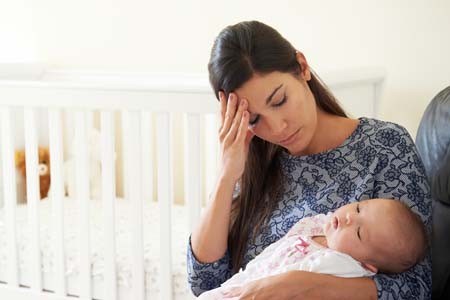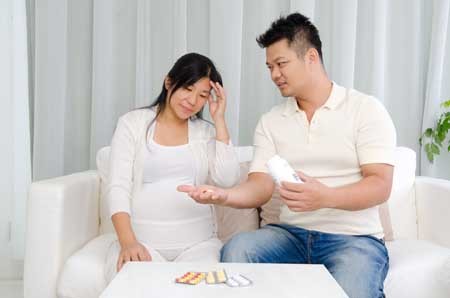Birth Defects from Valproate Lower in Bipolar Disorder than in Epilepsy
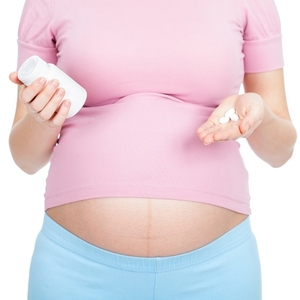 The anticonvulsant valproate increases the risk of serious birth defects in fetuses exposed to it. However, a 2017 report by ANSM, France’s agency for health and product safety, and its national insurance fund for employed workers shows that these risks are lower for women taking valproate for bipolar disorder than for women taking valproate for epilepsy.
The anticonvulsant valproate increases the risk of serious birth defects in fetuses exposed to it. However, a 2017 report by ANSM, France’s agency for health and product safety, and its national insurance fund for employed workers shows that these risks are lower for women taking valproate for bipolar disorder than for women taking valproate for epilepsy.
In France, the risk of a major fetal malformation was 10.2 per 1000 women in the general population, about twice that (22.2 per 1000) in women taking valproate for bipolar disorder, and about 4 times higher (46.5 per 1000) in women taking valproate for epilepsy. The authors suggest that treatment for bipolar disorder may be more likely to be interrupted during pregnancy, and this could explain the different levels of risk by diagnosis.
Among the risks of defects in the fetuses of women being treated with valproate for epilepsy, the risk of a ventricular septal defect (a hole in the wall separating the lower heart chambers) was 11.2% compared to 2.7% in fetuses not exposed to valproate, while risk of an atrial septal defect (a hole in the wall separating the upper heart chambers) was 19.1% in the fetuses of those prescribed valproate for epilepsy compared to 1.9% in unexposed fetuses. Risk of hypospadias (placement of the urethra opening on the underside of the penis rather than its end) was 22.7% compared to 4.8% in the general population.
Risks of a major malformation were dose dependent in those with epilepsy (but interestingly, not in those with bipolar disorder), meaning the more valproate patients with epilepsy took, the higher their risk of a fetus with birth defects.
The only birth defects that were more common in the fetuses of women taking valproate for bipolar disorder than in fetuses not exposed to valproate were hypospadias (17.5% risk compared to 4.8% in the general population) and craniostenosis, a deformity of the skull (4.2% risk compared to 0.4% in the general population).
The relative safety of valproate in women being treated for bipolar disorder compared to those being treated for epilepsy is good news for some. However, fetal exposure to valproate has also been linked to deficits in cognitive development.
The risk of spina bifida, which causes lifetime paralysis, in a fetus may no longer be such a catastrophic issue for women taking valproate for bipolar disorder (where the risk did not exceed that of the general population), as was once assumed based on data from women with epilepsy (where the risk is usually 2-4%, but was 8% in this French study). This may be of some comfort to women with bipolar disorder who require valproate treatment to remain stable and wish to become pregnant or in those who experience an unplanned pregnancy.
Antidepressant Use in Pregnancy Does Not Increase Autism Risk
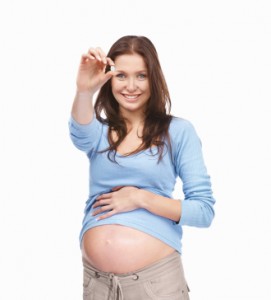 Two large observational studies published in the journal JAMA in 2017 find no link between antidepressant use during pregnancy and risk of an autism spectrum disorder. Previous studies had suggested a link between the two, but may not have sufficiently accounted for confounding factors. In both new studies, autism rates did not differ between siblings exposed to antidepressants in utero and those who were not exposed.
Two large observational studies published in the journal JAMA in 2017 find no link between antidepressant use during pregnancy and risk of an autism spectrum disorder. Previous studies had suggested a link between the two, but may not have sufficiently accounted for confounding factors. In both new studies, autism rates did not differ between siblings exposed to antidepressants in utero and those who were not exposed.
One of the studies, by researcher Ayesha C. Sujan and colleagues, analyzed exposure to antidepressants in the first trimester and neurodevelopmental outcomes in almost 1.6 million Swedish children. Antidepressant use did slightly increase the chance of a preterm birth, but was not linked to autism spectrum disorder, attention-deficit hyperactivity disorder (ADHD), or small size of the fetus.
The researchers suggested that doctors and patients work together to decide how depression should be treated during pregnancy, based on severity of the depression, treatment history, and access to services.
The other study, by researcher Hilary K. Brown and colleagues, analyzed 36,000 births in Ontario, Canada and found no increased risk of autism spectrum disorder based on antidepressant exposure in utero. The study controlled for 500 characteristics such as mother’s education, age, and health history.
The journal JAMA Pediatrics also published a meta-analysis and review of 10 studies on the subject, finding that a woman’s history of psychiatric disorders weakened any link between antidepressant use during pregnancy and risk of autism spectrum disorder in her children. This implies that the underlying illness, not its treatment, may be responsible if there is any link between depression and autism. The meta-analysis was carried out by researcher Antonia Mezzacappa and colleagues.
Allopregnanolone Injection Eliminated Post-Partum Depression in Four Women
In a small proof-of-concept study, researcher Stephen J. Kanes and colleagues showed that injections of allopregnanolone could nearly eliminate symptoms of post-partum depression.
Allopregnanolone is the main metabolite of the hormone progesterone. Rapid changes in hormone levels following delivery are thought to cause post-partum depression.
In the study, four women with post-partum depression were given injections of SAGE-547, a proprietary solution of allopregnanolone. The dose was adjusted over 12 hours until it approximated prenatal levels of allopregnanolone. This level was maintained for 36 hours, and then the women were weaned off the SAGE-547 over another 12 hours. As soon as the women began injections of SAGE-547, their depression began to improve, and this lasted after they stopped receiving the injections. By 84 hours after beginning treatment, depression scores had improved by 81%.
Kanes and colleagues, who presented this research at the 2016 meeting of the Society of Biological Psychiatry, will follow up this study with placebo-controlled trials of SAGE-547.
SSRI Use During Pregnancy Linked to Adolescent Depression in Offspring
A 2016 article by Heli Malm and colleagues in the Journal of the American Academy of Child and Adolescent Psychiatry suggests that in utero exposure to selective serotonin reuptake inhibitor (SSRI) antidepressants may increase the risk of depression in adolescence. However, the study included potentially confounding factors. It is possible that women who took SSRIs during pregnancy had more severe depression than those who went unmedicated during pregnancy. The mothers in the study who took SSRIs also had more comorbid conditions such as substance abuse.
Editor’s Note: Women should balance the risks and benefits of antidepressant use during pregnancy, since depression itself can have adverse effects on both mother and fetus. It has recently been established that SSRI use during pregnancy does not cause birth defects, so women with depression that has not responded to non-pharmaceutical interventions such as psychotherapy, omega-3 fatty acid supplementation, exercise, mindfulness, and repeated transcranial magnetic stimulation (rTMS) may still want to consider SSRIs.
Antipsychotic Use During Pregnancy Most Likely Safe
A new study suggests that women can continue using antipsychotic medications during the first trimester of pregnancy without meaningfully increasing the risk of birth defects in their offspring.
The study, by Krista F. Huybrechts and colleagues in the journal JAMA Psychiatry, looked at Medicaid users who filled at least one prescription for an antipsychotic medication during their first trimester of pregnancy, when an embryo’s vital organs are formed, and went on to have a live birth. Birth defects, including cardiac malformations, in these children were identified in the first 90 days after delivery and compared to the number of such abnormalities in the children of women on Medicaid who did not receive a prescription for an antipsychotic drug during the first trimester of pregnancy. The number of abnormalities was slightly higher in the children of women who had received atypical antipsychotics than in those who had not, and slightly lower in the children of women who had received a typical antipsychotic than in those who had not.
Huybrechts and colleagues concluded that taking an antipsychotic medication during the first trimester of pregnancy does not meaningfully increase the risk of birth defects in the offspring.
The children of women who took the antipsychotic risperidone did have a small increased risk of birth defects, including cardiac malformations. The researchers called for additional study of risperidone use during pregnancy.
In Rats, Mother’s Exercise Habits Affect Those of Offspring
 A recent study suggests that when a mother rat exercises during pregnancy, her offspring will exercise more too.
A recent study suggests that when a mother rat exercises during pregnancy, her offspring will exercise more too.
In the study, published by Jesse D. Eclarinel and colleagues in The FASEB Journal, pregnant mother rats were placed in cages that each contained an exercise wheel. One group had access to a working wheel on which they could run. The other group had the same wheel, but it was locked so that they couldn’t use it for running. Daughters of the rats who ran during pregnancy ran more in adulthood (both at 60 days and 300 days after birth) than daughters of the rats who couldn’t run during pregnancy.
While it is a mystery why this occurs, it is consistent with other data about the ways that a parent’s experiences can influence the next generation, even when the offspring don’t grow up with the parents.
For example, father rats conditioned to associate a specific smell with fear of an electric shock have offspring that also fear that smell (but not other smells).
Drug use is another example. Father rats given access to cocaine have offspring that are less interested in cocaine. Interestingly, father rats exposed to marijuana have offspring that are more interested in opiates.
Experiences with drugs or stress are thought to affect the next generation via ‘epigenetic’ marks on ova or sperm. These marks change the way DNA is packaged, with long-lasting effects on behavior and chemistry. Most marks from a mother’s or father’s experiences are erased at the time of conception, but some persist and affect the next generation.
The nature versus nurture debate is getting more and more complicated. Parents can influence offspring in a number of ways: 1) genetics; 2) epigenetics in the absence of contact between parent and offspring after birth; 3) epigenetic effects of behavioral contact—that is, parents’ caring and warmth versus abuse and neglect can affect offspring’s DNA expression too. All these are in addition to any purely behavioral influence a parent may have on their offspring via discipline, teaching, being a role model, etc.
Editor’s Note: The moral of the story is, choose your parents wisely, or behave wisely if you yourself become a parent.
Perinatal Choline Supplements May Reduce Risk of Schizophrenia
 Many psychiatric illnesses, including bipolar disorder, schizophrenia, autism, attention deficit hyperactivity disorder (ADHD), and anxiety disorders may stem from abnormalities in brain development that begin before birth. Researchers are trying to determine whether dietary supplements taken by pregnant mothers or infants can reduce the risk of such illnesses. At a recent scientific meeting, researcher Randal Ross and colleagues reported that compared to placebo, choline supplements reduced problems with a brain process called sensory gating in one-month-old infants and also improved the children’s attention span and social skills at age 3.
Many psychiatric illnesses, including bipolar disorder, schizophrenia, autism, attention deficit hyperactivity disorder (ADHD), and anxiety disorders may stem from abnormalities in brain development that begin before birth. Researchers are trying to determine whether dietary supplements taken by pregnant mothers or infants can reduce the risk of such illnesses. At a recent scientific meeting, researcher Randal Ross and colleagues reported that compared to placebo, choline supplements reduced problems with a brain process called sensory gating in one-month-old infants and also improved the children’s attention span and social skills at age 3.
Sensory gating is the process by which the brain filters out unimportant information, to avoid flooding higher cortical centers with irrelevant stimuli. Deficits in the way the brain inhibits response to this type of irrelevant information are associated with mental illnesses such as schizophrenia.
In Ross’s study, healthy pregnant mothers received either a placebo or 6300 mg of choline, a nutrient found in liver, egg yolks, and meat. After delivery, the infants also received 700 mg of supplemental choline per day. In children who carried CHRNA7, a risk gene for schizophrenia discovered by Ross’s colleague Robert Freedman, choline reversed the associated risk of sensory gating problems and normalized their behavior at age 3.
Treating Prenatal Depression Improves Outcomes for Mothers and Babies
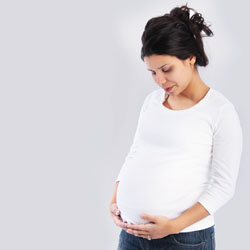 A recent study confirms that women who are depressed during pregnancy are more likely to experience adverse pregnancy outcomes such as preterm or cesaerean delivery and small or underweight babies. However, antidepressant treatment improved outcomes for pregnant women with depression.
A recent study confirms that women who are depressed during pregnancy are more likely to experience adverse pregnancy outcomes such as preterm or cesaerean delivery and small or underweight babies. However, antidepressant treatment improved outcomes for pregnant women with depression.
The 2016 study by Kartik K. Venkatesh and colleagues in the journal Obstetrics & Gynecology included 7,267 women who gave birth after at least 20 weeks of pregnancy. About 11% of the women screened positive for depression during their pregnancy. Depressed mothers-to-be were more likely to give birth before 37 weeks and before 32 weeks compared to nondepressed mothers-to-be. The depressed women were also more likely to deliver small babies or babies weighing under 2500g.
About 7% of the women in the study received antidepressant medication. Compared to nondepressed women, the women taking antidepressants did not have greater rates of early delivery or small babies. However, the authors caution that because so few women received antidepressants, the study does not reveal whether antidepressants improve outcomes for depressed pregnant women.
Treating Women During Pregnancy and Breastfeeding
A Danish working group has released guidelines for prescribing psychotropic drugs to women who are pregnant or breastfeeding. After a comprehensive review of the literature, researchers from several different Danish medical societies reported that sertraline and citalopram are the first choice among selective serotonin reuptake inhibitors (SSRIs) for depression in women who are pregnant or breastfeeding. The working group suggested that women with bipolar disorder who need a mood stabilizer because of frequent relapses could be prescribed lithium, though lithium use is associated with a small risk of cardiac abnormalities in the child. Lamotrigine may also be used, and has not been associated with any congenital abnormalities.
Valproate and carbamazepine are not recommended for use during pregnancy and breastfeeding. Use of valproate among women of child-bearing age should particularly be avoided due to several risks for the potential child. These include spina bifida and other serious congenital problems, but also severe developmental delay and loss of about 9 IQ points. Other possible treatments for bipolar disorder and schizophrenia in pregnant and breastfeeding women include olanzapine, risperidone, quetiapine, and clozapine. The data about the safety of these medications are not extensive.
The working group included members of the Danish Psychiatric Society, the Danish Society of Obstetrics and Gynecology, the Danish Paediatric Society, and the Danish Society of Clinical Pharmacology. The recommendations may be found in an article by E.R. Larsen and colleagues in a 2015 supplement to the journal Acta Psychiatrica Scandinavica.
Maternal Infection During Pregnancy May Increase Risk of Schizophrenia in Offspring
 There is mounting evidence from animal studies and epidemiological research that an infection during pregnancy may increase the risk of schizophrenia in the offspring. A recent study by Alan Brown and colleagues presented at the 2015 meeting of the Society of Biological Psychiatry used a large dataset from the Finnish Prenatal Study of Schizophrenia to compare medical data from the mothers of 777 people with schizophrenia (630 with schizophrenia and 147 with schizoaffective disorder) to data from the mothers of 777 healthy people.
There is mounting evidence from animal studies and epidemiological research that an infection during pregnancy may increase the risk of schizophrenia in the offspring. A recent study by Alan Brown and colleagues presented at the 2015 meeting of the Society of Biological Psychiatry used a large dataset from the Finnish Prenatal Study of Schizophrenia to compare medical data from the mothers of 777 people with schizophrenia (630 with schizophrenia and 147 with schizoaffective disorder) to data from the mothers of 777 healthy people.
The study’s biobank contained blood samples taken from the mothers in early to mid-pregnancy, which the researchers used to determine the mothers’ levels of C-reactive protein (CRP), an indicator of inflammation. Higher levels of CRP were associated with increased risk of schizophrenia in the offspring. When the researchers analyzed the findings by sex of the offspring, the link between prenatal infection and schizophrenia risk was significant in males, but not females. The effect was also stronger among offspring born after their due date than those born at or before their due date.

